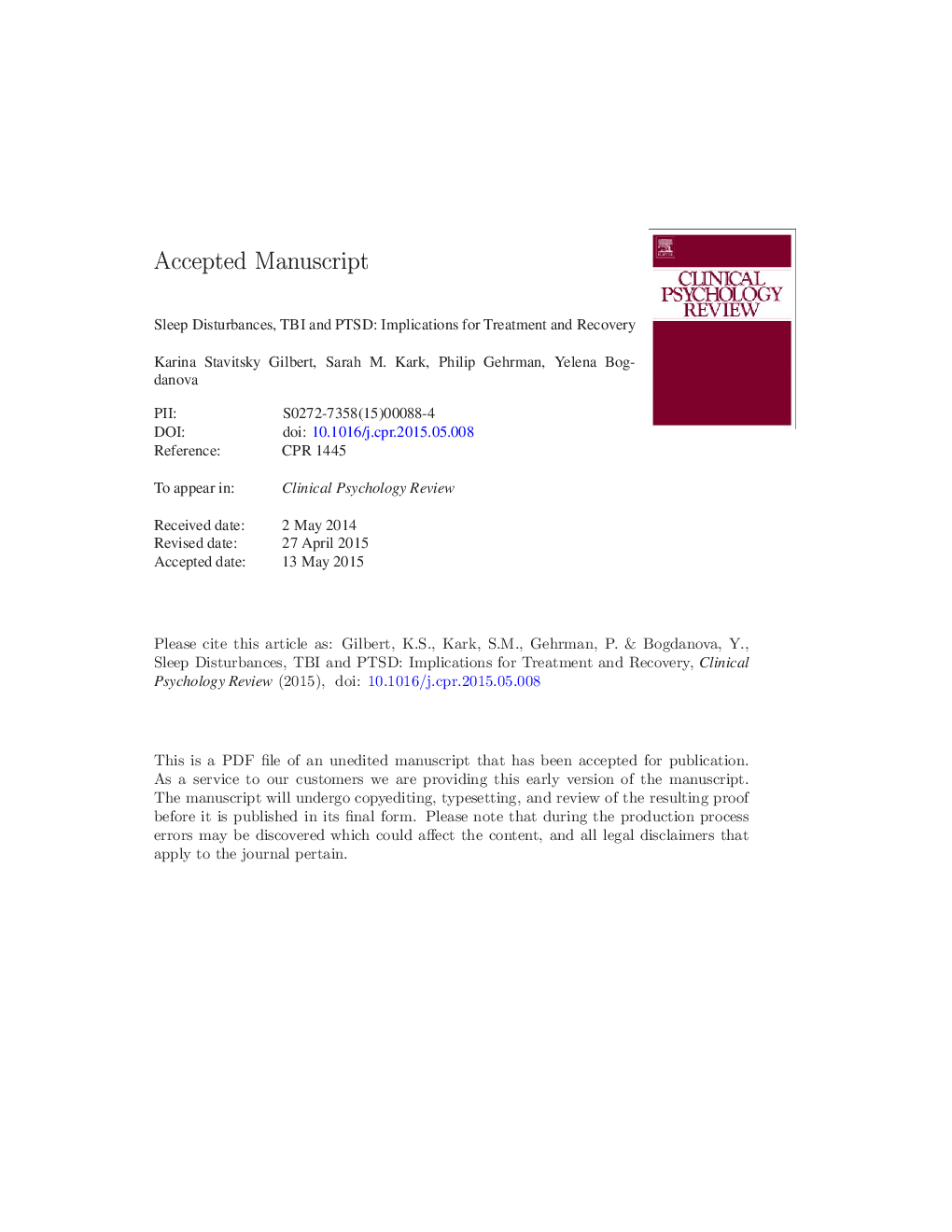| Article ID | Journal | Published Year | Pages | File Type |
|---|---|---|---|---|
| 7264093 | Clinical Psychology Review | 2015 | 51 Pages |
Abstract
Post-Traumatic Stress Disorder (PTSD), traumatic brain injury (TBI), and sleep problems significantly affect recovery and functional status in military personnel and Veterans returning from combat. Despite recent attention, sleep is understudied in the Veteran population. Few treatments and rehabilitation protocols target sleep, although poor sleep remains at clinical levels and continues to adversely impact functioning even after the resolution of PTSD or mild TBI symptoms. Recent developments in non-pharmacologic sleep treatments have proven efficacious as stand-alone interventions and have potential to improve treatment outcomes by augmenting traditional behavioral and cognitive therapies. This review discusses the extensive scope of work in the area of sleep as it relates to TBI and PTSD, including pathophysiology and neurobiology of sleep; existing and emerging treatment options; as well as methodological issues in sleep measurements for TBI and PTSD. Understanding sleep problems and their role in the development and maintenance of PTSD and TBI symptoms may lead to improvement in overall treatment outcomes while offering a non-stigmatizing entry in mental health services and make current treatments more comprehensive by helping to address a broader spectrum of difficulties.
Keywords
median preoptic areaCRSDCBT-IMNPOLLLTmTBIImagery rehearsal therapyACTHIRTBDNFMild traumatic brain injuryobstructive sleep apneacircadian rhythm sleep disordersOsaCognitive behavioral therapy for insomniaLight emitting diodesLEDBrain-derived neurotrophic factorLow-level laser therapyCARCSFCerebrospinal fluidHPA axisadrenocorticotropic hormonehypothalamic–pituitary–adrenalCortisol awakening response
Related Topics
Health Sciences
Medicine and Dentistry
Psychiatry and Mental Health
Authors
Karina Stavitsky Gilbert, Sarah M. Kark, Philip Gehrman, Yelena Bogdanova,
